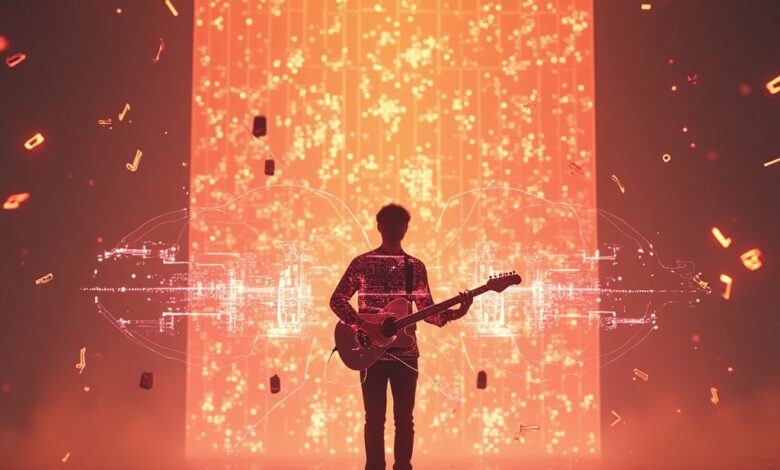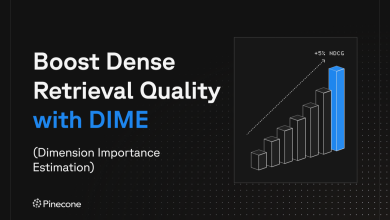
In an era where art and algorithms intersect, the future of music is being shaped by more than just human hands. The latest musical revolution is unfolding not in recording studios, but in lines of code and neural networks. AI in music is no longer theoretical—it’s an active force redefining how we create, distribute, and experience sound. The real question isn’t whether AI will transform music, but how we’ll harness its power without losing the soul that makes music meaningful.
From Digital Streaming to Algorithmic Creation
The music industry has long shifted from physical albums to a thriving digital ecosystem. Platforms like Spotify and Apple Music have revolutionized music consumption, placing curated playlists and expansive catalogs in every listener’s pocket. Social apps like TikTok and tools like SoundCloud and BandLab have broken down industry gatekeeping, enabling independent artists to reach global audiences in ways previously unimaginable. This democratization of music production has paved the way for AI-generated music to flourish and find new audiences.
AI Tools in Music Production and Composition
Today’s musicians are increasingly integrating AI into their creative workflows. Tools like Amper Music, AIVA, and OpenAI’s Jukebox help generate melodies, harmonies, and full compositions, accelerating processes that once took weeks or even months. Services like LANDR provide AI-powered mastering, making high-quality production more accessible and affordable. These innovations are expanding access to music creation while raising important questions about authorship in the age of algorithmic composition and machine-led Creativity.
Can AI Music Capture Human Emotion?
Despite its technical capabilities, AI-generated music sparks debate about emotional authenticity. Can a song produced by machine match the depth of one born from lived experience and human vulnerability? Critics argue that AI lacks the emotional nuance of human artistry, while supporters see it as a powerful tool for enhancing creative expression through new lenses. Like any instrument, the value of AI depends on how it’s used—and who’s using it—with intention and purpose.
Music Discovery Powered by Artificial Intelligence
AI is not only reshaping how music is made, but also how it’s discovered and shared. Spotify’s AI DJ and TikTok’s recommendation engine use advanced algorithms to tailor content to individual tastes, making personalized music discovery faster, more intuitive, and highly engaging. At the same time, these platforms blur the line between human curation and machine influence, prompting questions about control, visibility, and artistic fairness in an increasingly automated system. Meanwhile, virtual concerts and digital performances are redefining the live music experience, combining sound, visuals, and interactivity in groundbreaking ways.
Artists and AI: A Collaborative Future
Visionary artists like Grimes and David Guetta are embracing AI as a co-creator rather than a competitor. From open-source remix tools to AI-generated vocals, their experiments are pushing the boundaries of what music can be, inviting fans into the process. The rise of virtual idols like Hatsune Miku and AI-native personas signals a future where the definition of “artist” is fluid, evolving, and increasingly decentralized. In this hybrid creative space, technology becomes both a medium and a message—a canvas for expression as well as a Collaborator.
The Legal and Ethical Frontier of AI Music
As AI-generated content becomes more prevalent, so do the challenges and gray areas it introduces. Who owns a track created with significant input from an algorithm or AI model? Legal frameworks are still catching up, and artists risk losing control or credit in a rapidly changing landscape. Disputes over deepfake vocals and unauthorized use of copyrighted material are growing, prompting major labels like Sony and Universal to take proactive measures to protect their catalogs. Establishing ethical and transparent policies will be critical to safeguard both innovation and creator rights in this evolving space.
What’s Next: The Evolution of Sonic Storytelling
Looking ahead, the possibilities for AI in music are vast and incredibly promising. Real-time adaptive soundtracks that react to mood or movement, collaborative tools that connect creators across continents, and interactive platforms where fans co-create music are no longer science fiction. AI in music could soon power virtual artists with global followings, entirely reshaping the music charts and cultural milestones. These innovations signal a shift toward more inclusive, immersive, and participatory musical cultures, where listeners are also contributors.
Preserving the Human Heart in Machine-Made Music
As we enter this new frontier, we must ask: is music defined by its origin, or by how it moves us? AI challenges traditional notions of authorship and creativity, but it also offers tools to amplify human expression in profound ways. The future of music isn’t about replacing artists—it’s about empowering them with unprecedented tools and possibilities, making creative production more accessible than ever. When used with intention and care, AI can help compose a future where emotion, innovation, and artistry live in perfect harmony.
Blending Algorithms with Emotion
The music of tomorrow will be shaped by those who can seamlessly blend algorithmic precision with emotional depth and human insight. As artists, technologists, and industry leaders, our responsibility is to guide this evolution with ethics, vision, and creativity. This is not an era of disruption—it’s an era of reinvention. With the right approach, every beat—whether written by hand or rendered by code—can resonate in the shared symphony of human experience.



